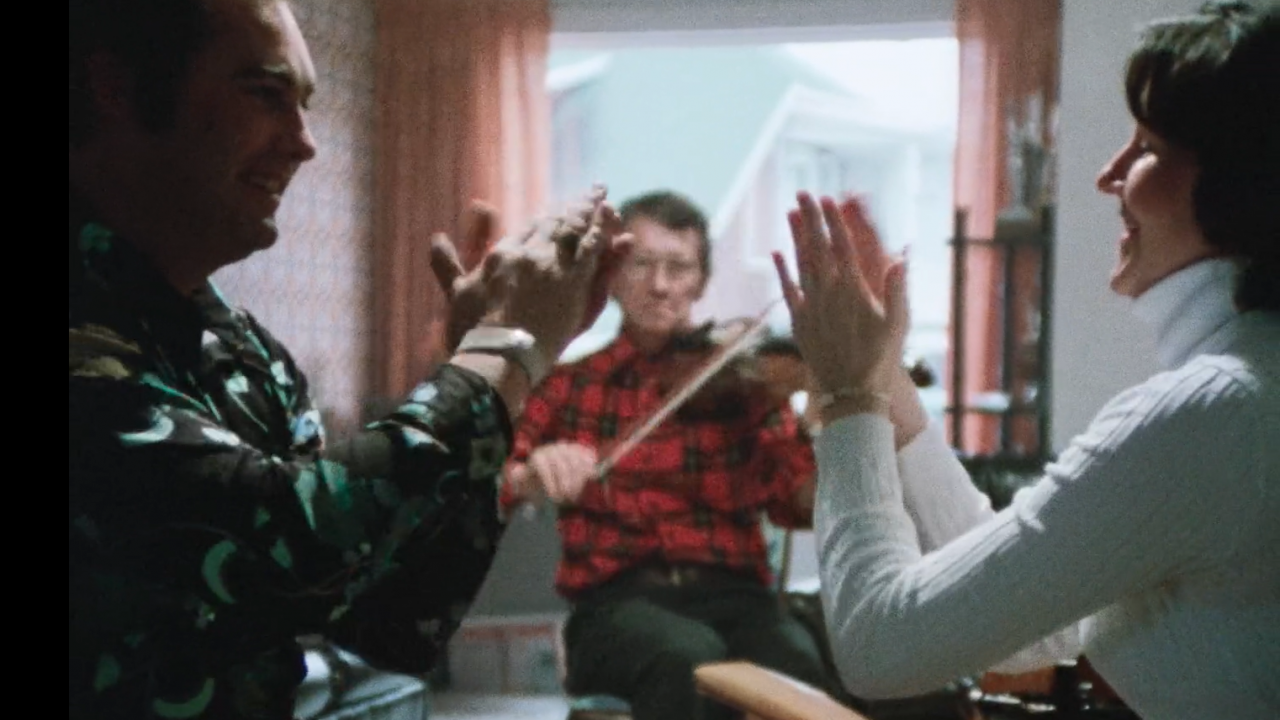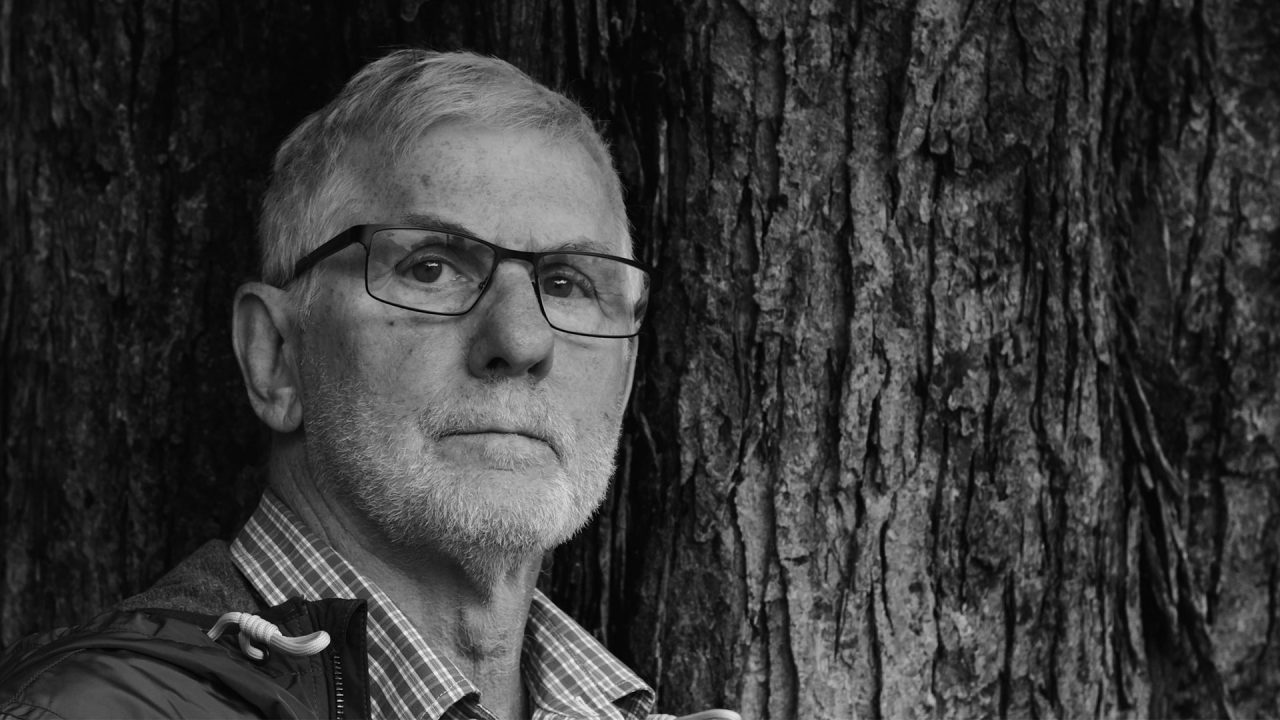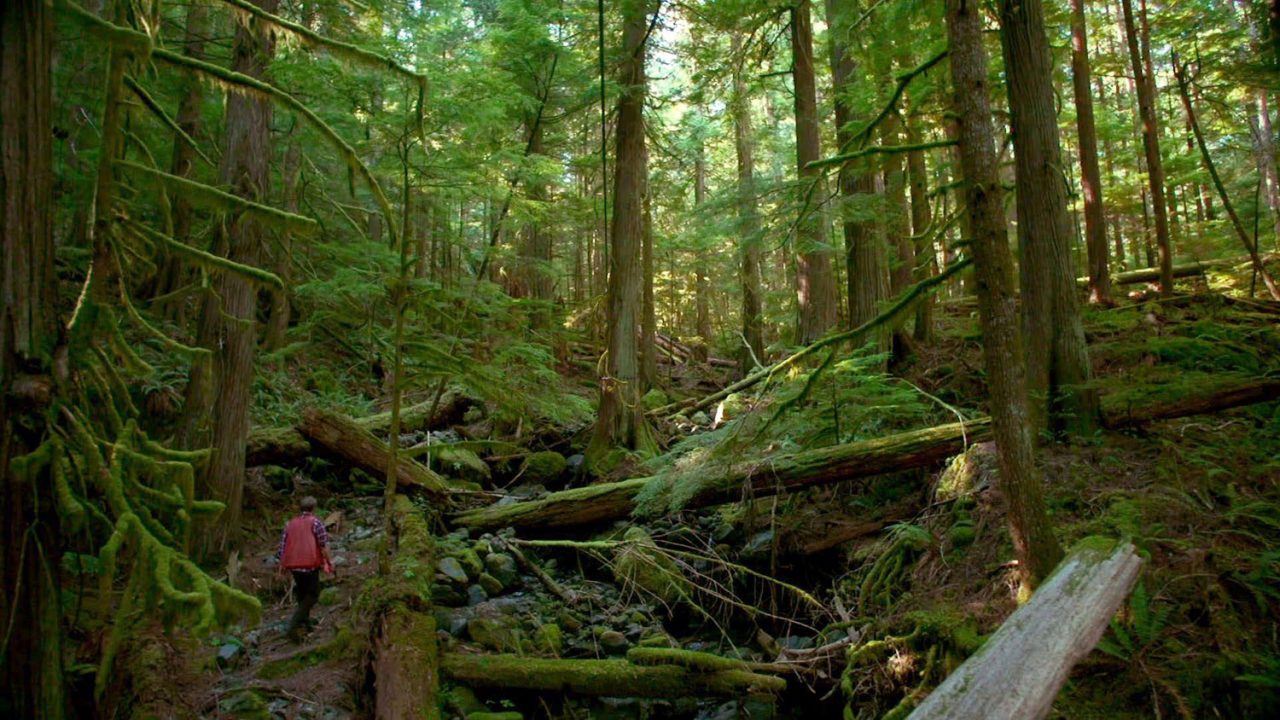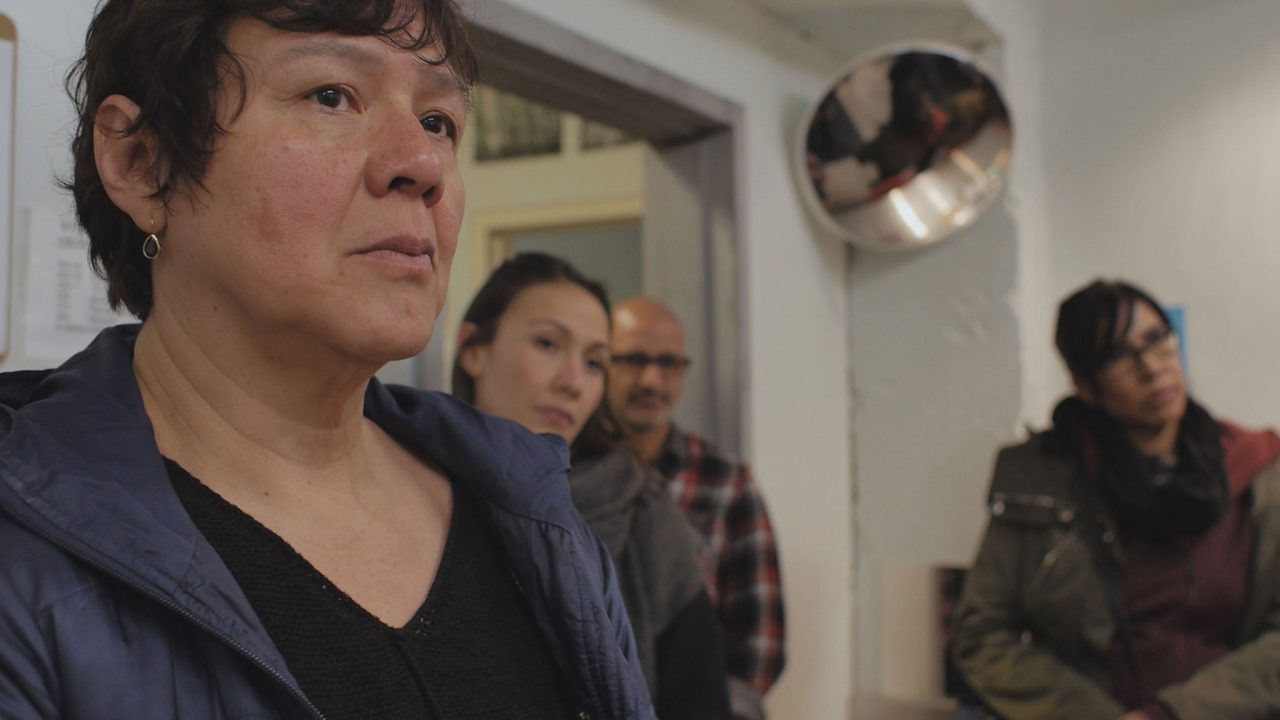
Higher Learning | Kímmapiiyipitssini: The Meaning of Empathy
Higher Learning | Kímmapiiyipitssini: The Meaning of Empathy
Kímmapiiyipitssini: The Meaning of Empathy teaches us the importance of the Blackfoot value of Kímmapiiyipitssini (GEE-maa-bee-bit-sin), a multifaceted term that cannot be simply defined in words but rather can only be fully understood through actions. This documentary takes a raw and revealing look at the ongoing work and efforts of Dr. Esther Tailfeathers in her home community of the Kainai Nation in Southern Alberta, one of the four nations of the Blackfoot Confederacy. The film was directed by her multi-talented daughter, Elle-Máijá Tailfeathers, and in it, they both share stories about helping their community struggle with addictions, the most recent being the opioid crisis that haunts many Indigenous families and communities.
Kímmapiiyipitssini: The Meaning of Empathy, Elle-Máijá Tailfeathers, provided by the National Film Board of Canada
Indigenizing harm reduction
Dr. Tailfeathers supports addictions recovery through harm reduction and public health education by applying Indigenous healing methods that reflect the Blackfoot worldview and community engagement. She approaches her healing practice through the lens of compassion and kindness, guiding individuals through a wholistic treatment method using Blackfoot spiritual and cultural teachings. She acknowledges the humanness of every patient and community member while still upholding the value of Kímmapiiyipitssini. The film exposes the reality of funding shortages for innovative and successful harm-reduction programs suited to Indigenous populations. Its focus is the complicated pathway to recovery and healing, with many obstacles magnified by colonization, systemic racism and intergenerational trauma. The current health crisis of the Kainai Nation and other Indigenous communities was never the intention of a strong warrior civilization that had the buffalo as their key spiritual element. Due to European contact, removal of the buffalo and the ongoing violence of colonialism, the Blackfoot People were forced into treaties that restricted them to small plots of reserve land.
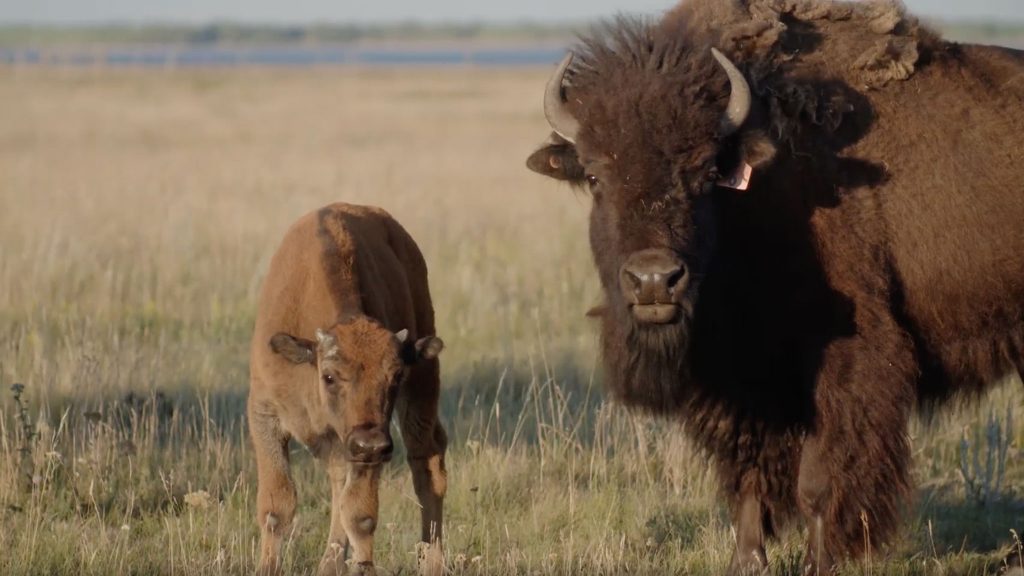
The lasting impact of the Indian residential school system
The Blackfoot way of life was upended in favour of colonialism and the Canadian government’s assimilation agenda. The added implementation of Indian residential schools further destroyed families and foundational Traditional Knowledge systems. The horrific experience and cultural genocide came at the cost of millions of First Nations Peoples’ lives, a reality that continues today. Dr. Tailfeathers identifies the residential school system as one of the many layers of trauma that affects her People. The impact of this trauma is seen throughout the film as we hear stories shared by Survivors; one Survivor cries as he recalls his residential school experience. We can feel the sadness of death and family destruction that is comprehensive and exhausting. Despite this, the strength, beauty and continued resilience of the Blackfoot People are shown through their beautiful smiles, laughter, ceremony, spirituality and the welcoming of each new baby.
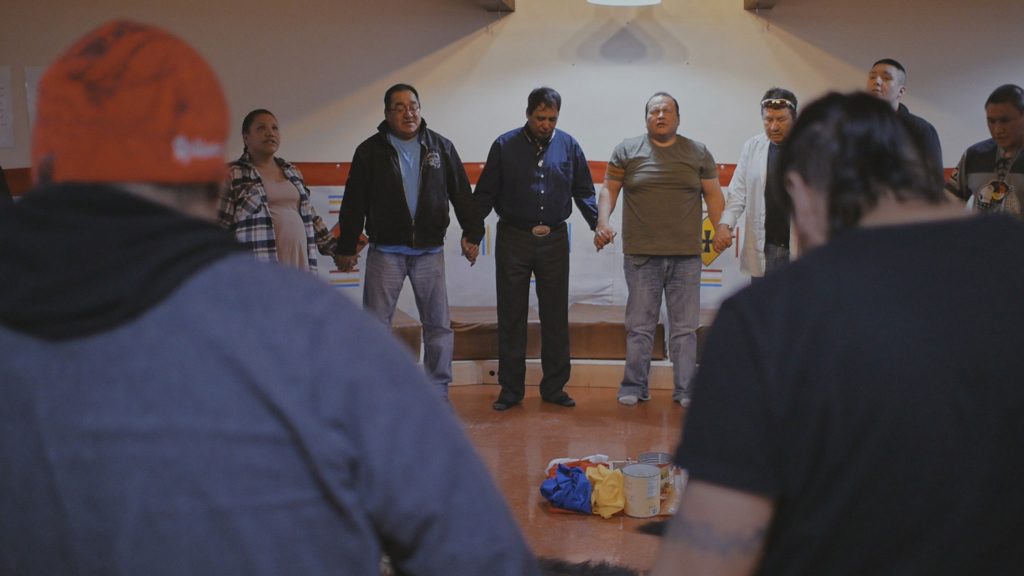
Community support
The Indigenous understanding of harm reduction is supported by the Sage Clan Patrol, a group of local community members who are fearless in their walks through the alleys of the closest city to the Kainai Nation, Lethbridge. They show compassion and understanding as they patrol the streets to ensure the safety of their people, who have turned to medicating and addiction to deal with their trauma. They draw on the strength of their Blackfoot cultural practices of singing, drumming and empathy, supporting marginalized and displaced relatives through prayer, respect and kindness—Kímmapiiyipitssini.
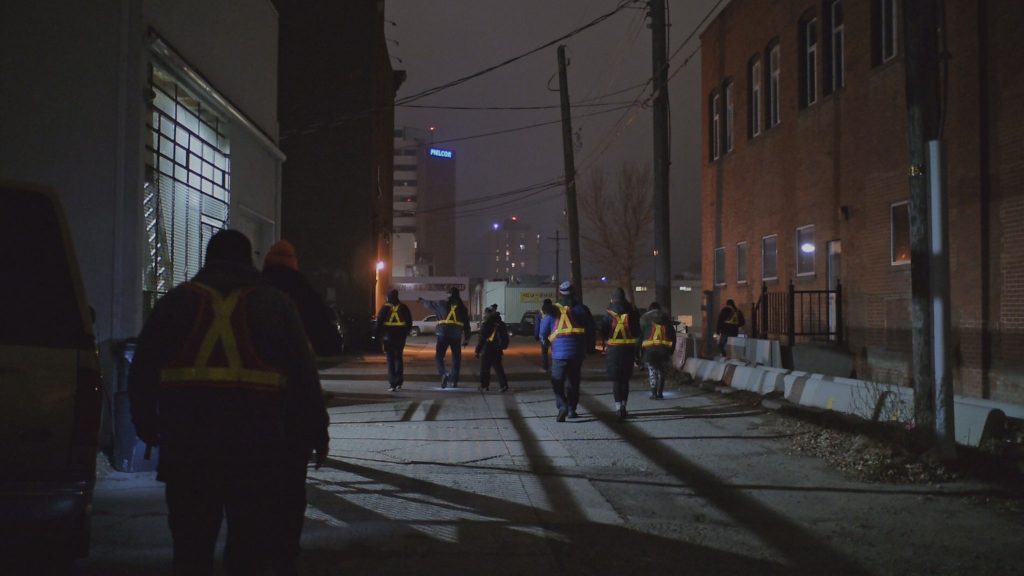
Understanding and applying Kímmapiiyipitssini
This documentary offers an accurate reflection of the addiction struggles of many of today’s Indigenous communities. However, Dr. Tailfeathers has drawn on the resilience of the Blackfoot People, their ability to survive and thrive, as she Indigenizes healthcare and recovery in her community. Her daughter has captured the beauty and strength of the Kainai Nation in this film, from the picturesque shots of the landscape to the songs and prayers of the Elders. These efforts are to ensure the longevity of their People and the continued teachings of the Blackfoot Ways of Knowing. And most importantly, the understanding and application of Kímmapiiyipitssini.
Nicholle Weasel Traveller is a proud member of the Piikani Nation of the Blackfoot Confederacy. She received her Master of Education in Indigenous Policy Studies, specializing in Indigenous Peoples Education at the University of Alberta in 2019. She is currently a high school teacher and student counsellor in Edmonton, Alberta. Nicholle is active in both her Niitsitapi traditional Ways of Knowing and in the Indigenous communities of Treaty 6 and 7.
Pour lire cet article en français, cliquez ici.
Discover more Educational blog posts | Watch educational films on NFB Education | Watch educational playlists on NFB Education | Follow NFB Education on Facebook | Follow NFB Education on Pinterest | Subscribe to the NFB Education Newsletter

